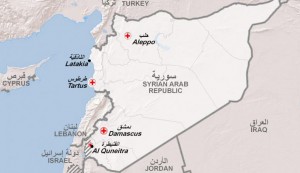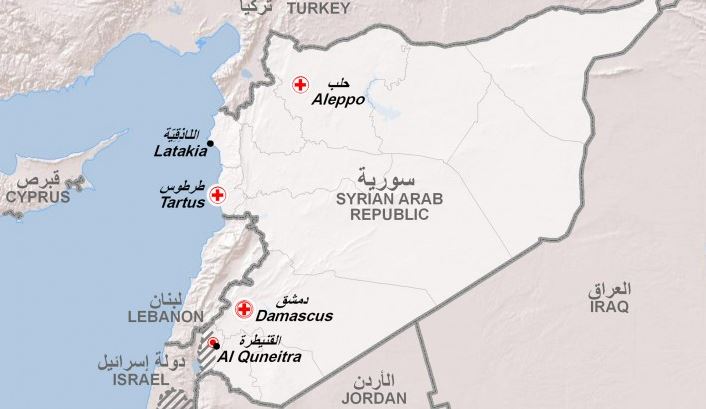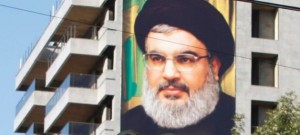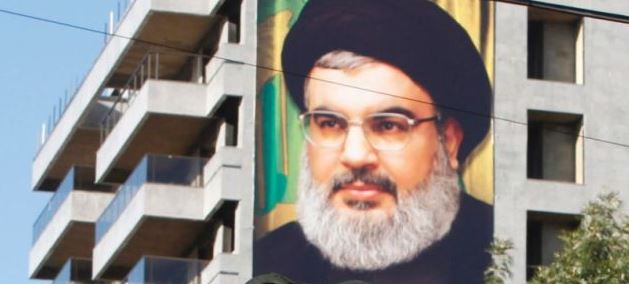The Syrian conflict continues to develop into a proxy war, pitting various foreign ‘national interests’ against one another, including Iran vs. Israel.
Israel launched its sixth airstrike inside Syria in last 18 months, in what the local media are describing as a ‘targeted killing’ carried out Sunday, killing at least 6 members of Hezbollah and the al Quds Iranian Guard who were fighting ISIS, al Nusra and other terrorist organizations operating in Syria.
Among those killed in the missile attack was Jihad Mughniyeh, son of the former Hezbollah head, Imad Mughniyeh, who was assassinated by the IDF in Damascus in 2008.
Local media reported that a car with six men on board was en route from Lebanon to Syria when its occupants were killed by a US-made Israeli helicopter.
The Israel raid took place near the Syrian city of Al Quneitra (see map below) near the Golan Heights region. Israel has long sought to forcibly annex Syria’s Golan Heights area and past aggression by Israel forced the UN to intervene by passing UN Resolution 497 in 1981, and placing a UNIFIL international peacekeeping force there until recently, when they were driven out of their position by Jabhat al Nusra terrorist fighters who received strategic, financial and military backing from Israel’s IDF.
Back in Sept., Israel used its IDF Patriot Missile battery to provide air cover to ISIS in the Golan Heights, to shoot down a Syrian MIG21, allegedly because it “violated Israeli airspace”, but the Israeli move aided ISIS in its advance through the area.
In addition, according to Fars News Agency, also killed in the Israeli attack inside Syria was an Iranian Revolutionary Guard commander, Mohammad-Ali Allahdadi, who was fighting alongside Damascus’s anti-ISIS coalition.
#Iran #IRGC Gen. Allahdadi martyred in tonight’s Israeli attack in #Syria along w/ #Hezbollah commanders pic.twitter.com/kSX0TUcQbo
— H.Soleimani (@MashreghNews_ir) January 18, 2015
Lebanon’s Shi’ite-oriented Hezbollah militia force is traditionally backed by Iran. In 2013, the group made it publicly known that they were fighting alongside the Syrian army in order to repel US and Saudi-backed Salafist terrorist groups and other western-backed foreign Islamist militants who have been gradually flooding into Syria since 2011, as part of the Washington-Riyadh-Tel Aviv Axis powers in their plan to topple the al Assad government in Damascus.
Hezbollah has vowed retaliation for Sunday’s Israeli attack. Previously, Hezbollah leader Hassan Nasrallah (image above) said how an Israeli attack in Syria is equivalent to an attack on Lebanon itself. It’s believed by Hezbollah that Sunday’s strike was the first of many intentional military provocations by Israel, who hope to draw out Hezbollah into a wider conflict, and thus helping ISIS, al Nusra and Washington’s “moderate rebel” FSA forces to over-run the Assad government and his forces in Syria. It is doubtful however, that Hezbollah will respond any time soon, or open a new military front against Israel in South Lebanon, not least of all because of key domestic Lebanese ‘reconciliation’ talks currently underway across political and religious lines in the country.
Sunday’s attack raises more questions about Israel’s military role in the Syrian conflict, and why they would be providing air cover and official military support to ISIS and other Islamic terrorist groups fighting against the Syrian Army and its allies.
As 21WIRE reported back in December after its previous Israeli attack in Syria, contrary to popular belief, Israel is very much involved in the destabilization of Syria, and providing direct support to ISIS and other Islamic terrorist groups operating inside Syria.
Under direct pressure from the US, UN Security Council members do not appear to be willing to suggest sanctions, or hold Israel responsible in any way for any its repeated attacks against its neighbors, for fear of what misfortunes and diplomatic difficulties might befall them. As a result, Israel has been acting with impunity in the region. Since 2006, Israel has conducted several air strikes on Syria. Below is a description of those attacks:
Al Quneitra (18 January 2015) – Missile attack near the Golan Heights, killing 6 Hezbollah and Iranian anti-ISIS soldiers, including one al Quds commander.
Damascus and Dimas attack (7 December 2014) – Alleged Israeli airstrikes in Syria against a warehouse of advanced S-300 missiles, which were en route to Hezbollah in Lebanon.[25]
Missile Strike at Golan Heights (23 September 2014) – IDF Patriot Missile battery shot down a Syrian MIG21, allegedly because it violated Israeli airspace.
Beqaa Valley airstrike (24 February 2014) – Two airstrikes against an alleged Hezbollah missile base in Lebanon near the border with Syria.[21]
2nd Latakia attack (26 January 2014) – Alleged Israeli airstrike against a Syrian warehouse of S-300 missiles.[20]
Snawbar airstrike (30 October 2013) – Alleged Israeli airstrike at an air defense site in Snawbar.[19]
Latakia explosion (5 July 2013) – Alleged Israeli airstrike on a Syrian depot containing Russian-made Yakhont anti-ship missiles.[18]
Airstrikes on Syria (3-5 May 2013) – Airstrikes on Syria against alleged long-ranged weapons sent from Iran to Hezbollah.[16][17]
Jamraya airstrike (30 January 2013) – Alleged Israeli airstrike on a Syrian convoy allegedly transporting weapons to Hezbollah.[14] Other sources stated the targeted site was a military research center in Jamraya responsible for developing biological and chemical weapons.[15]
Operation Orchard (6 September 2007) Israeli airstrike on a ‘suspected’ nuclear reactor[4] in the Deir ez-Zor region[5] of Syria. The Israeli and U.S. governments imposed virtually total news blackouts immediately after the raid that held for seven months.[6]
Ain es Saheb airstrike (5 October 2003) – Israeli Air Force operation against an alleged Palestinian militant training camp in Ain es Saheb, Syria.
Additionally, Israel has attacked Lebanon repeatedly, most notably in 2006 when it slaughtered some 1,500 Lebanoese civilians during it’s indiscriminate bombing raids hitting residential areas and targeting ‘infrastructure’ in neighboring Lebanon:
Operation Just Reward (12 July – 14 August 2006) – Israeli counterattack which began with air force bombing of Hezbollah positions in Southern Lebanon. Israel attacked Lebanon in this bloody siege which ended with 1,191 Lebanese dead in total (including combatants and foreign civilians in Lebanon) with over 4,000 injured. The IDF lost only 121 soldiers, and Israeli civilians said to have died were 43.




